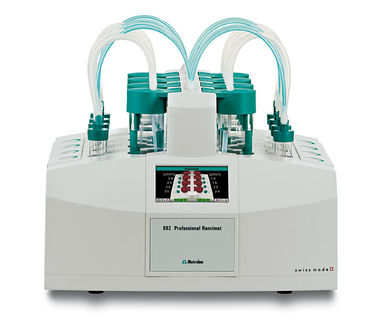To use all functions of this page, please activate cookies in your browser.
my.chemeurope.com
With an accout for my.chemeurope.com you can always see everything at a glance – and you can configure your own website and individual newsletter.
- My watch list
- My saved searches
- My saved topics
- My newsletter
Primary carnitine deficiency
Primary carnitine deficiency is a condition that prevents the body from using fats for energy, particularly during periods without food. Carnitine, a natural substance acquired mostly through diet, is used by cells to process fats and produce energy. People with primary carnitine deficiency have defective proteins called carnitine transporters, which bring carnitine into cells and prevent its escape from the body. Product highlight
PresentationTypically, initial signs and symptoms of this disorder occur during infancy or early childhood and often include brain function abnormalities (encephalopathy); an enlarged, poorly pumping heart (cardiomyopathy); confusion; vomiting; muscle weakness; and low blood sugar (hypoglycemia). Serious complications such as heart failure, liver problems, coma, and sudden unexpected death are also a risk. Acute illness due to primary carnitine deficiency can be triggered by periods of fasting or illnesses such as viral infections, particularly when eating is reduced. Diagnosis and treatmentPrimary carnitine deficiency is sometimes diagnosed in adults and is then thought to be less severe both in symptoms and life expectation. Treatment is usually done by supplementation of L-carnitine after assessing the severity of the deficiency after a muscular biopsy. This condition is sometimes mistaken for Reye syndrome, a severe disorder that develops in children while they appear to be recovering from viral infections such as chicken pox or flu. Most cases of Reye syndrome are associated with the use of aspirin during these viral infections. IncidenceOn the average, primary carnitine deficiency affects 1 in every 40,000 live births in Japan and 1 in every 37,000 to 100,000 newborns in Australia. The incidence of this condition in other populations has not been determined.[citation needed] Genetics
Mutations in the SLC22A5 gene lead to the production of defective carnitine transporters. As a result of reduced transport function, carnitine is lost from the body and cells are not supplied with an adequate amount of carnitine. Without carnitine, fats cannot be processed correctly and are not converted into energy, which can lead to characteristic signs and symptoms of this disorder. This condition is inherited in an autosomal recessive pattern. HistoryThe current understanding of primary carnitine deficiency has been greatly influenced by the research of Doctors Susan C. Winter and Neil Buist. Dr. Winter was one of the first doctors in the United States to begin treating inborn errors of metabolism with intravenous carnitine.[citation needed]
Categories: Metabolic disorders | Inborn errors of metabolism |
|||||||||||||||
| This article is licensed under the GNU Free Documentation License. It uses material from the Wikipedia article "Primary_carnitine_deficiency". A list of authors is available in Wikipedia. | |||||||||||||||







